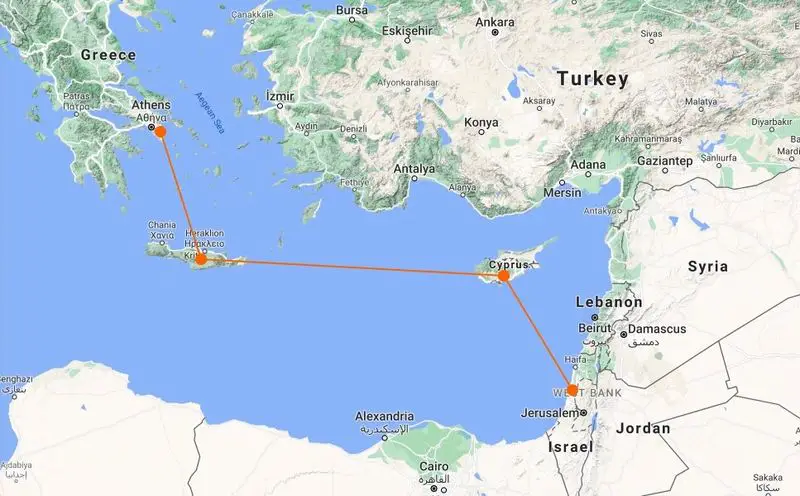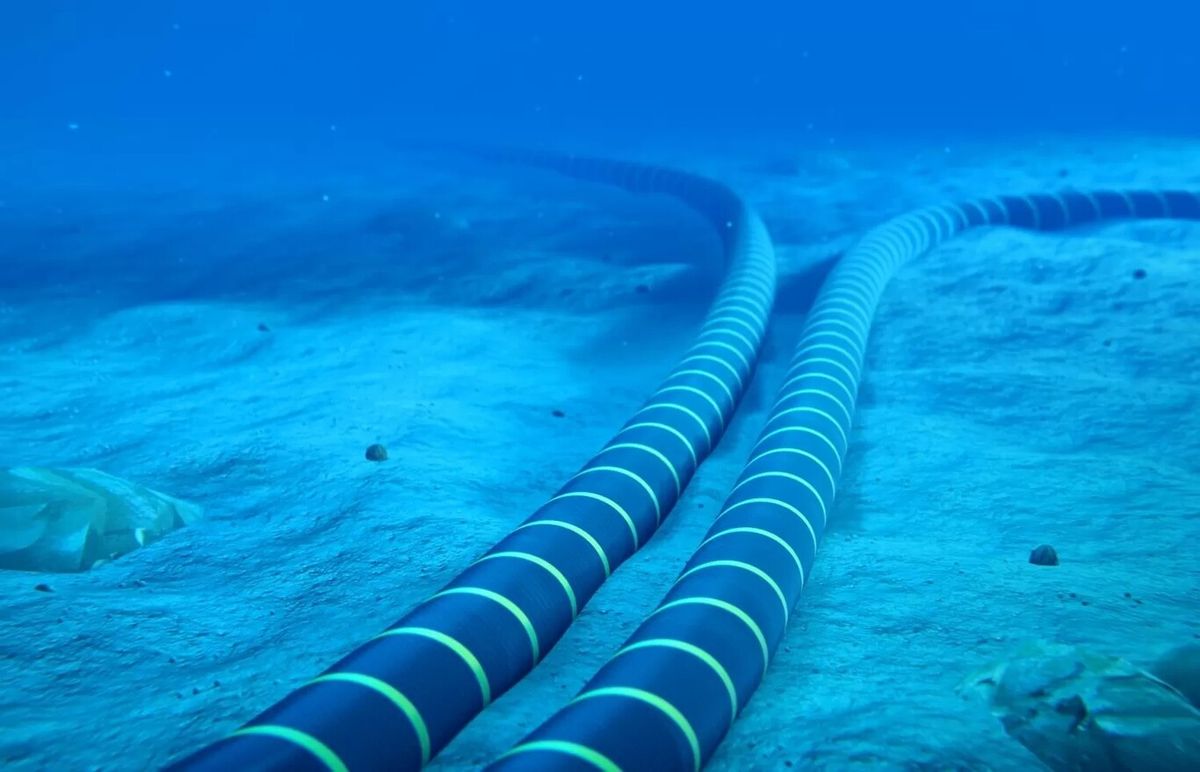When we talk about submarine cables we are generally used to talk about the cables that carry the Internet around the world. They are quite amazing if we take into account their capacities and what they look like on the inside, for example. However, there are also submarine cables to carry electricity, and the biggest of all is soon to be built in the Mediterranean.
The world’s longest undersea power cable will connect Israel, Cyprus, and Greece
As announced on the project’s official website, an initial agreement was reached this past Monday to build the undersea power cable that will connect Greece, Cyprus, and Israel. It will cross the depths of the Mediterranean Sea and will serve as an emergency backup in the event of a blackout in any of the three countries.

The cable, if built, will be the longest and deepest of its kind to date. It is expected to be around 1,500 kilometers long and to be located at a depth of 2,700 meters in the water. Inside it will circulate electricity at a capacity of 1,000-2,000 megawatts.
Co-financed in part by the European Union, the EuroAsia Interconnector (the name given to the project and the cable) will cost around 750 million euros. It is expected to be completed and connect the power grids of the three countries by 2024 and operational by 2025.
Greece, Cyprus, and Israel
The idea is for the cable to connect a section between Israel and Cyprus of about 310 kilometers. Another section of about 900 kilometers will connect Cyprus with the Greek island of Crete. Finally, the last section of another 310 kilometers will connect Crete with the rest of Greece.

With this cable, the three governments involved hope to promote the use of renewable energies in their respective countries. In addition to being used in emergencies to supply from the other two countries, it will provide a more convenient exchange of electricity between Europe and Asia.
It will also allow Cyprus to finally be energy interconnected with the rest of the European Union. It is the only member country of the European Union that is currently completely isolated. This is why the European Union sees it as a project of common interest and is therefore willing to help with financing.





